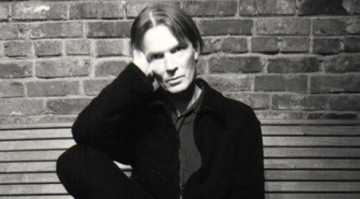
Originally published in the Northside San Francisco in October 2009
All writers of confessions, from Augustine on down, have always remained a little in love with their sins. —Anatole France
I’m glad I made a point of hearing Jim Carroll read his poetry. He died in September at the age of 60. Carroll in the flesh was a formidable yet friendly presence. Tall, lanky and with an aura of eternal youth, his wide eyes and birdlike features clashed with his raspy voice that croaked like an old rusty spring.
Carroll’s poetry and prose served an identical purpose. Both had the brilliant conversational immediacy, insight and humor. Born in New York City in 1949, the poet, musician and diarist Jim Carroll was first known as a basketball star when he attended Trinity High School in Manhattan. His descent into drug addiction was well documented in his book The Basketball Diaries, later turned into a film starring Leonardo DiCaprio as the drug-addled teenage Carroll.
Carroll’s first volume of poetry, Living at the Movies was published in 1973. His second diary Forced Entries captured the New York City scene in the early 70’s. I heard Carroll read excerpts from Forced Entries; tangents and anecdotes about Max’s Kansas City, drugs, sex, madness, suicide. Tragic characters living on the fringes of society were brought to life with a sweetness and humor that made the whole scene sound as innocent as a 1950’s family sitcom. That was part of Jim’s gift. We always felt like he was essentially a good guy. Jim was a friend. His great storytelling ability allowed the audience to trust him. We knew he’d bring us back from these dark places unscathed but wiser for the journey.
Drugs and sex aside, Carroll was an amazing talent steeped in classic literature. He was influenced by Frank O’Hara, John Ashbery and the New York school of poets. A 13-year old Carroll was supposedly introduced to Jack Kerouac. Kerouac was said to have proclaimed that young Jim was writing better than eighty percent of the writers of that time. Carroll sought out legends. His books tell of his literary encounters with writers such as William Burroughs,Terry Southern and the like with all of the stuttering shyness you would expect from an up-and-coming poet meeting his idols.
Influenced by his friend Patti Smith, he formed the Jim Carroll Band. Catholic Boy, released in 1980, was considered a monumental album of the New York punk rock movement. His most popular song, People Who Died, was an opus to all his friends who, as Jim would say, “…died by an age thought predetermined through the timing of their abuses and excesses.” Dark, yes, but this anthem of love to friends lost is as upbeat, ebullient and life affirming as any song about death can be. About his music career, Carroll said “When I first started I just relied strictly on passion because I wasn’t technically a good singer … The engineer asked me if I ever hurt myself when I sing because I just get so tight when I do it. It’s harder for me to relax when I sing.”
Unlike many of his friends, Jim Carroll outlived his abuses and excesses. Still, a voice so unique is always gone too soon. Now it’s our turn to take on the bittersweet task of celebrating the life of a lost friend. This one’s for Jim. To quote People Who Died — “I salute you, brother!”